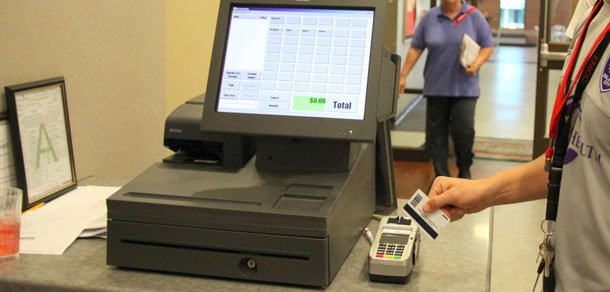
By Tom Stiles, Identification Systems Group
Historically, most smaller universities and community colleges have shied away from true “one card” systems, with larger price tags and staffing requirements often giving them pause. More recently, however, we’re noticing a major transition as institutions of all sizes are looking to benefit from a true campus card system without the initial hefty investment of the past.
More campus card systems have begun offering scalable and modular systems, giving even the smallest colleges an opportunity to benefit from one system to manage all of their on-campus card systems and applications. With cloud-hosted offerings, pricing can drop even more significantly, as campuses no longer need to worry about the hardware and staffing requirements associated with on-campus servers. The flexibility of systems today gives them an opportunity to only purchase what they need initially and expands as budget and security requirements grow in the future.
With less than 5,000 students, East Mississippi Community College (EMCC) is a great example of a smaller institution with big dreams for their campus card system. In 2015, EMCC made the decision to migrate their campus card platform to TotalCard, a BadgePass product, giving them the cost-effective solution they needed with the long-term functionality and flexibility they required.
The first step of migration was implementing new ID software in the form of BadgePass Identity Manager. “TotalCard’s badge production module, Identity Manager, couldn’t be easier to use,” explains Jeff Harrell, Network Administrator at EMCC. “When we switched from our previous software to this, I think we spent 5-10 minutes training the library staff and sent a short email to them to describe the process. It’s that easy.”
Though the campus may not be home to tens of thousands of students like some larger universities, EMCC’s data integration requirements are still of upmost priority. “When implementing TotalCard, one of our biggest concerns was being able to seamlessly integrate with our existing student information system database for easier card production for students and faculty members,” Harrell says. “We created a few SQL views that include information such as name, ID number, meal plans and housing number. Since all the information comes directly from our student information system, the library staff who issue the ID cards have no extra data entry to do.”
As mentioned, integration to the student information system database was important to EMCC. No matter the campus one card system being used, getting everything working together is very important. Here are some questions to consider:
Which is the one true, accurate student database at your institution - the student information system or the campus one card database?
At most institutions the one, truly accurate database is student information system. It is where the campus one-card system should get its data from, not the other way around.




